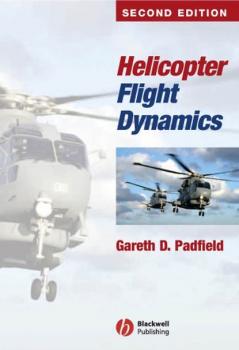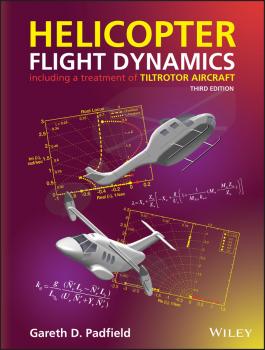ТОП просматриваемых книг сайта:
Gareth Padfield D.
Список книг автора Gareth Padfield D.Аннотация
The behaviour of helicopters is so complex that understanding the physical mechanisms at work in trim, stability and response, and thus the prediction of Flying Qualities, requires a framework of analytical and numerical modelling and simulation. Good Flying Qualities are vital for ensuring that mission performance is achievable with safety and, in the first edition of Helicopter Flight Dynamics, a comprehensive treatment of design criteria was presented. In this second edition, the author complements this with a new Chapter on Degraded Flying Qualities, drawing examples from flight in poor visibility, failure of control functions and encounters with severe atmospheric disturbances. Fully embracing the consequences of Degraded Flying Qualities during the design phase will contribute positively to safety. The accurate prediction and assessment of Flying Qualities draws on the modelling and simulation discipline on the one hand and testing methodologies on the other. Checking predictions in flight requires clearly defined ‘mission-task-elements’, derived from missions with realistic performance requirements. High fidelity simulations also form the basis for the design of stability and control augmentation systems, essential for conferring Level 1 Flying Qualities. The integrated description of flight dynamic modelling, simulation and flying qualities forms the subject of this book, which will be of interest to engineers in research laboratories and manufacturing industry, test pilots and flight test engineers, and as a reference for graduate and postgraduate students in aerospace engineering. The Author Gareth Padfield, a Fellow of the Royal Aeronautical Society, is the Bibby Professor of Aerospace Engineering at the University of Liverpool. He is an aeronautical engineer by training and has spent his career to date researching the theory and practice of flight for both fixed-wing aeroplanes and rotorcraft. During his years with the UK’s Royal Aircraft Establishment and Defence Evaluation and Research Agency, he conducted research into rotorcraft dynamics, handling qualities and flight control. His work has involved a mix of flight testing, creating and testing simulation models and developing analytic approximations to describe flight behaviour and handling qualities. Much of his research has been conducted in the context of international collaboration – with the Technical Co-operation Programme, AGARD and GARTEUR as well as more informal collaborations with industry, universities and research centres worldwide. He is very aware that many accomplishments, including this book, could not have been achieved without the global networking that aerospace research affords. During the last 8 years as an academic, the author has continued to develop his knowledge and understanding in flight dynamics, not only through research, but also through teaching the subject at undergraduate level; an experience that affords a new and deeper kind of learning that, hopefully, readers of this book will benefit from.
Аннотация
The Book The behaviour of helicopters and tiltrotor aircraft is so complex that understanding the physical mechanisms at work in trim, stability and response, and thus the prediction of Flying Qualities, requires a framework of analytical and numerical modelling and simulation. Good Flying Qualities are vital for ensuring that mission performance is achievable with safety and, in the first and second editions of Helicopter Flight Dynamics, a comprehensive treatment of design criteria was presented, relating to both normal and degraded Flying Qualities. Fully embracing the consequences of Degraded Flying Qualities during the design phase will contribute positively to safety. In this third edition, two new Chapters are included. Chapter 9 takes the reader on a journey from the origins of the story of Flying Qualities, tracing key contributions to the developing maturity and to the current position. Chapter 10 provides a comprehensive treatment of the Flight Dynamics of tiltrotor aircraft; informed by research activities and the limited data on operational aircraft. Many of the unique behavioural characteristics of tiltrotors are revealed for the first time in this book. The accurate prediction and assessment of Flying Qualities draws on the modelling and simulation discipline on the one hand and testing practice on the other. Checking predictions in flight requires clearly defined mission tasks, derived from realistic performance requirements. High fidelity simulations also form the basis for the design of stability and control augmentation systems, essential for conferring Level 1 Flying Qualities. The integrated description of flight dynamic modelling, simulation and flying qualities of rotorcraft forms the subject of this book, which will be of interest to engineers practising and honing their skills in research laboratories, academia and manufacturing industries, test pilots and flight test engineers, and as a reference for graduate and postgraduate students in aerospace engineering.


